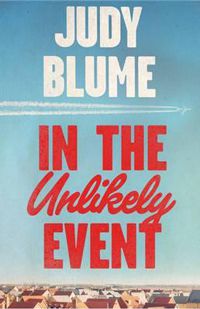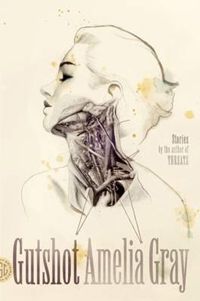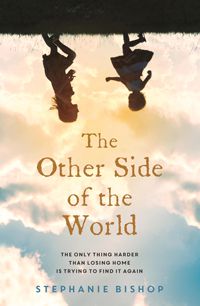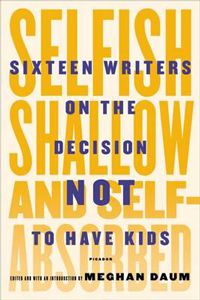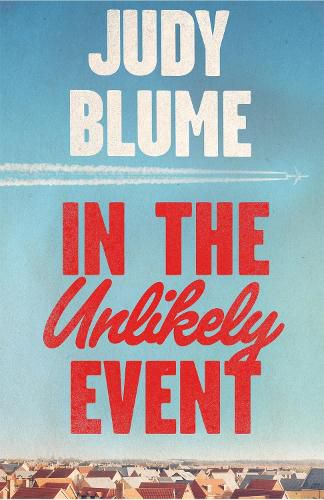What we're reading: Amelia Gray, Judy Blume and Stephanie Bishop
Each week we bring you a sample of the books we’re reading, the films we’re watching, the television shows we’re hooked on or the music we’re loving.
Nina Kenwood is reading In the Unlikely Event by Judy Blume
I was lucky enough to nab one of the much sought-after advance copies of Judy Blume’s new novel, her first book for adults in over 15 years. Just the words ‘Judy Blume’ evoke comfort in me. Along with most of the adult population of my generation (and those before, and after) I grew up reading her books, and I also grew up hearing other people talking about her books. Blume is more than just an author – her impact on literature has been profound.
I’m about a third of the way through In the Unlikely Event and so far, it’s a delight. Blume’s writing is warm and funny and similar in tone to Anne Tyler’s, although Blume is more concerned with her younger characters than Tyler.
In the Unlikely Event is out in June, and I can’t wait to discuss it with other people.
Alan Vaarwerk is reading Gutshot by Amelia Gray
I’m pretty excited to get stuck into more of Amelia Gray’s deliciously weird and punchy flash fiction. Gray’s writing dances along the lines of magical realism and absurdist humour, with elements of sci-fi and body horror. Often her fiction reads like a joke told in reverse, beginning with a punchline and extrapolated outward. Fans of Kelly Link, Etgar Keret or flash fiction in general should definitely seek her work out.
Emily Harms is reading The Other Side of the World by Stephanie Bishop
I’ve just finished reading an early copy of the second novel from superb Australian author Stephanie Bishop.
In 2006, Bishop was named one of the Sydney Morning Herald’s Best Young Australian Novelists for her debut novel, The Singing. Her second novel has now arrived, almost ten years later, and has already been shortlisted for the 2014 Australian/Vogel’s Literary Award – under the original title ‘Dream England’. The book is due for release in July as The Other Side of the World.
Set in Cambridge in 1963, the novel hones in on the subtle unravelling of a relationship. Having gone through a miscarriage and now struggling with balancing parenting with limited time for herself to paint, Charlotte is in a bad place. Her husband, Henry, wants life to return to how it used to be before they had children and believes everything will be alright again – if they just avoid another English winter and move to Australia. Unfortunately, life isn’t as simple as that.
The Other Side of the World is a beautifully written and rare insight into the personal struggles within a marriage, motherhood and the constant search for a sense of ‘home’.
Amy Vuleta is reading Selfish, Shallow, and Self-Absorbed: Sixteen Writers on the Decision Not to Have Kids edited by Meghan Daum
I’ve just finished reading this brilliant collection of essays. All of the contributors are writers who have actively decided not to have children and the title is a tongue-in-cheek reference to how people choosing a ‘child-free’ life are often labelled (selfish, shallow and self-absorbed). What struck me the most about this collection is how diverse these writers’ experiences are, and how varied their reasons for not having children are. Given that I’m in my early thirties and therefore surrounded by friends around my age, who are themselves surrounded by babies that they’ve made (who I love, don’t get me wrong!), I was incredibly grateful and impressed by the considered and consciously crafted reasons detailed in this book. I highly recommend it to anyone who likes to live a thoughtful life – with or without kids by your side.
Inspired to read more smart writers articulating thoughts and theories about under-represented ways of being in the modern world, I’ve moved on to a gorgeous new hardback release from the US: Spinster: A Life of One’s Own.
I first read an article by author Kate Bolick that was published in The Atlantic in 2011 in which she explored the changing state of affairs in the realm of relationships and family in contemporary western cultures and economies, especially for women. (Find the article here.) Now, in the book that this long article began, Bolick looks at the lives of a number of great ‘spinsters’ throughout history – single women who were highly productive, successful and prolific artists. I’m looking forward to reading more of this memoir-meets-history-meets-cultural commentary.



